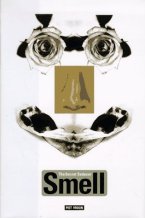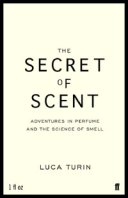 There's only a handful of comprehensive books on the psychology of smell; one of them is Smell: The Secret Seducer by Piet Vroon. It was originally published in Dutch in 1994, and the English translation is now almost ten years old. I included it in my list of five “must-have” books for beginners (December 2005), because it's properly researched, well-referenced, and easily accessible to a large public. It was a long time since I last browsed through it, so I dusted off my old copy of the Dutch original, hoping that I wouldn't be disappointed in retrospect. Here's what I found…
There's only a handful of comprehensive books on the psychology of smell; one of them is Smell: The Secret Seducer by Piet Vroon. It was originally published in Dutch in 1994, and the English translation is now almost ten years old. I included it in my list of five “must-have” books for beginners (December 2005), because it's properly researched, well-referenced, and easily accessible to a large public. It was a long time since I last browsed through it, so I dusted off my old copy of the Dutch original, hoping that I wouldn't be disappointed in retrospect. Here's what I found…
The latest smell research: identifying the fragrance of a rose
Scientists at Duke University Medical Center have unlocked another piece of the puzzle about how we identify particular odors:
In studies in mice, the researchers found that nerve cells in the brain's olfactory bulb -- the first stop for information from the nose -- do not perceive complex scent mixtures as single objects, such as the fragrance of a blooming rose. Instead, these nerve cells, or neurons, detect the host of chemical compounds that comprise a rose's perfume. Smarter sections of the brain's olfactory system then categorize and combine these compounds into a recognizable scent.
Read more at news-medical or sciencedaily.
The Secret of Scent: Adventures in Perfume and the Science of Smell by Luca Turin
 Understanding how smell works is a bit like trying to fix a radio, with the premise that a) you have little knowledge of its components, and b) the darn thing didn't come with a wiring diagram. For seven decades, scientists have explored the various components of the olfactory system, and how they are connected to each other. But despite their hard work, the fundamental question has remained unanswered: how does our nose 'read' odorant molecules? Biochemist and perfume connoisseur Luca Turin thinks he cracked the code, and wrote a book about it: The Secret of Scent.
Understanding how smell works is a bit like trying to fix a radio, with the premise that a) you have little knowledge of its components, and b) the darn thing didn't come with a wiring diagram. For seven decades, scientists have explored the various components of the olfactory system, and how they are connected to each other. But despite their hard work, the fundamental question has remained unanswered: how does our nose 'read' odorant molecules? Biochemist and perfume connoisseur Luca Turin thinks he cracked the code, and wrote a book about it: The Secret of Scent.
If you've read Chandler Burr's The Emperor of Scent (2003), you're familiar with the basics of Turin's theory of olfaction…
The latest smell research: scent of fear improves brain power
Researchers at Rice University have found that women who were exposed to the scent of fear-induced sweat performed better on cognitive tasks:
"It is well-documented in the research literature that animals experiencing stress and fear produce chemical warning signals that can lead to behavioral, endocrinological and immunological changes in their fellow animals of the same species, but we wanted to see if this applies to humans as well," said principal investigator Denise Chen, assistant professor of psychology at Rice.
Read the rest of the article here.
Lipstick on your collar: the latest smell research
Female mice apparently prefer mates who have already been chosen by other females:
In a series of experiments designed to help scientists understand the brain chemicals that guide mate selection, Pfaff and his colleagues exposed female mice to odors of either a male mouse alone or a male mouse with a female. The females consistently preferred the scent of males linked to other females…